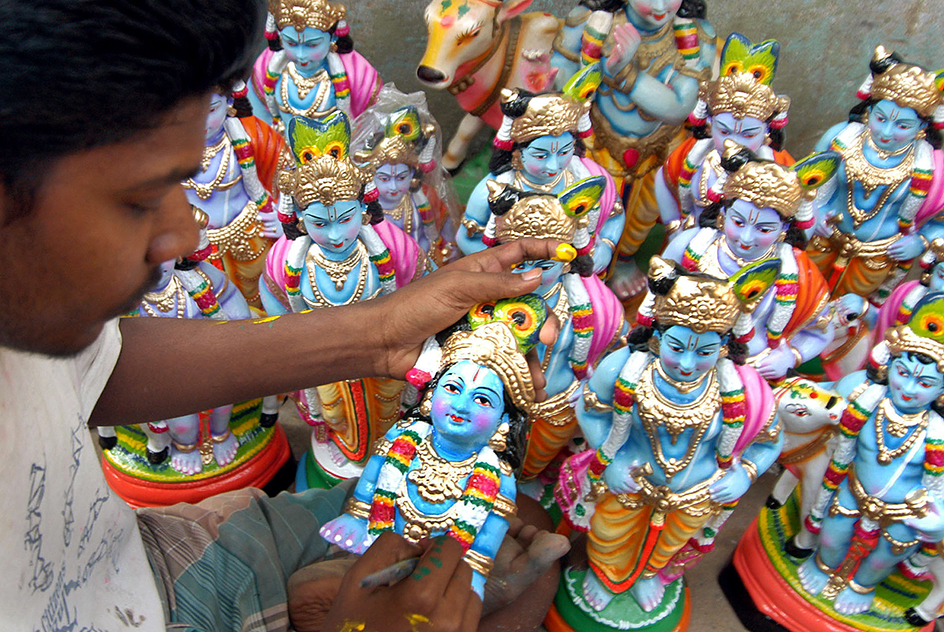Janmashtami << juhn MAHSH tuh mee >> is a Hindu festival that celebrates the birth of the god Krishna. It usually falls in August, late in India’s rainy season. The festival is celebrated especially by Vaishnavites—that is, followers of the god Vishnu. The festival’s name is a combination of the Sanskrit words for birth and eighth day. In Hindu mythology, Krishna is the eighth of the avatars (earthly appearances) of Vishnu, the Lord Creator god in Hinduism. In the Hindu legends, Mathura is Krishna’s birthplace, and Vrindavan is the place where Krishna spent his childhood. Mathura and Vrindavan hold some of the largest celebrations of Janmashtami. The temples are decorated with flowers, and prayers are said through the night preceding the festival. The celebration of Krishna’s birth is also accompanied by devotional singing and dancing.

According to Hindu mythology, Krishna was the eighth of his mother Devaki’s children. The first seven had been killed at birth by the evil king Kamsa, because it had been prophesied that one of her children would kill him. But after Krishna was born, his father, Vasudeva, managed to escape with the baby and exchanged it with the baby of Devaki’s sister, Yashoda. Kamsa killed this baby, and Krishna lived to kill Kamsa.
Janmashtami is celebrated widely, but it is most popular in areas where people speak Hindi. The day before the festival, devotees of Krishna fast until midnight, which according to legend is the hour of his birth. A family may put up a shrine to Krishna in their house, with an image of Krishna and scenes from his life. After midnight, Krishna is greeted with offerings of curds and sweetmeats. In some places, pots of curds are hung from high places in the street. Men and boys form human pyramids to break these pots, in imitation of the way the child Krishna and his cowherding friends stole the curds that their mothers had hung out of their reach.
See also Bhagavad-Gita.
